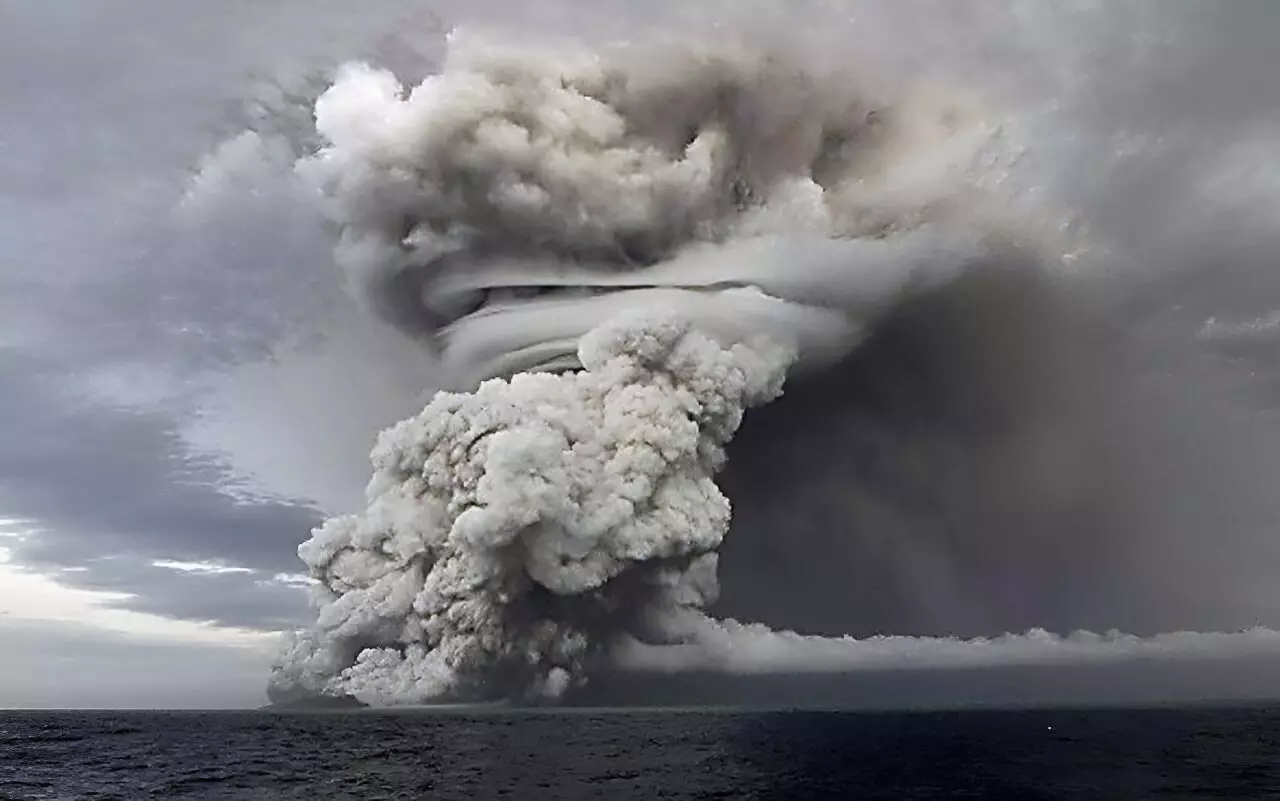The aftermath of the 2022 Hunga Tonga volcano eruption has been a subject of intense research and analysis by a collaborative team, including Dr. Andrew Dessler from Texas A&M University. The unique nature of this underwater eruption injected a significant amount of volcanic aerosols and water vapor into the atmosphere, leading to a reevaluation of its impact on global climate patterns. Previous large volcanic events like Tambora and Mt. Pinatubo have been known to cause cooling effects on the Earth’s climate due to the blocking of sunlight by aerosols. However, the Hunga Tonga eruption presented a novel scenario with its introduction of water vapor into the stratosphere, raising questions about its potential impact on global temperatures.
The research conducted by the team, as published in the Journal of Geophysical Research: Atmospheres, challenges the initial speculation that the increased water vapor from the eruption could have contributed to the extreme warmth experienced in 2023 and 2024. Contrary to this hypothesis, the findings indicate that the eruption actually played a role in cooling the Earth, aligning with the effects of other major volcanic events. By analyzing satellite data observations from NASA and NOAA, the team estimated the energy balance of the Earth’s climate system and concluded that more energy left the system than entered it, resulting in a slight cooling effect.
Dr. Dessler emphasizes the importance of this research in shifting the focus back to human-induced greenhouse gas emissions as the primary driver of climate change. The study dismisses the volcanic eruption as a significant factor in recent warming trends, highlighting the critical need to address anthropogenic contributions to global warming. With ongoing debates and misinformation surrounding the causes of climate change, the research reinforces the urgency of understanding the impact of human activities on the environment.
Dr. Mark Schoeberl underscores the significance of continued investments in satellite-based stratospheric measurements to deepen our understanding of volcanic eruptions and their effects on climate. The team’s work highlights the essential role of precise data in addressing the challenges of climate change and improving our knowledge of stratospheric circulation processes. Despite answering some critical questions, the research also raises new unresolved issues, such as the low levels of sulfur dioxide produced by the eruption and its minimal impact on the 2023 ozone hole over Antarctica.
As scientists strive to unravel the complexities of the Earth’s climate system, the study of the 2022 Hunga Tonga eruption provides valuable insights into the interplay of natural events and human activities on global temperatures. By reevaluating the climate impact of volcanic eruptions, researchers can advance our understanding of climate change and emphasize the need for sustainable solutions to mitigate its effects. The ongoing research in this field underscores the critical importance of continued investments in scientific endeavors to address the pressing challenges posed by climate change.



Leave a Reply